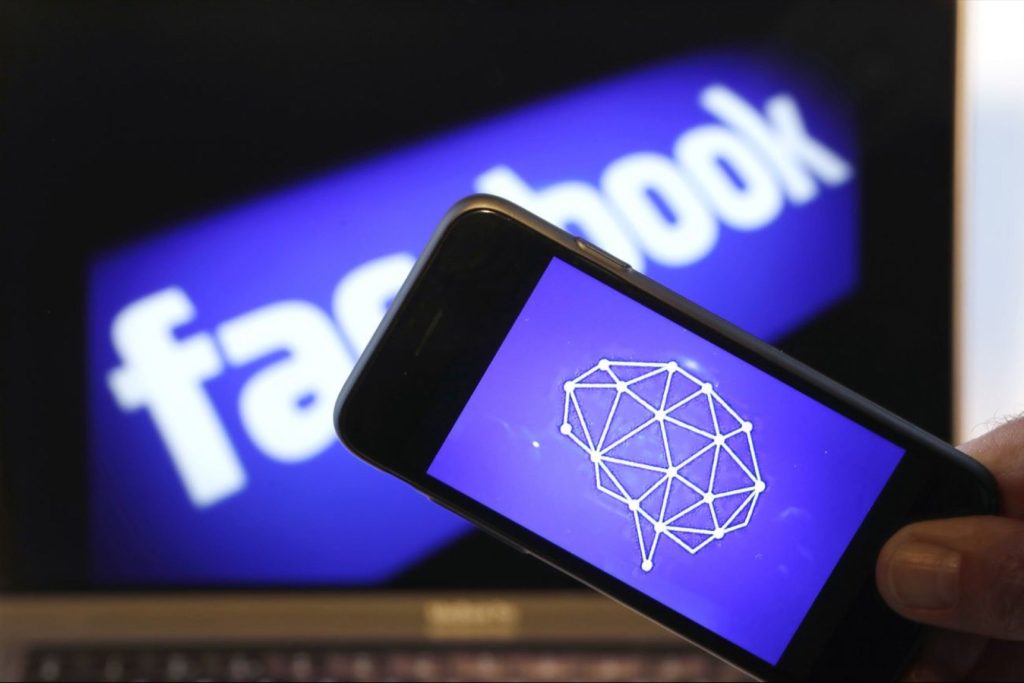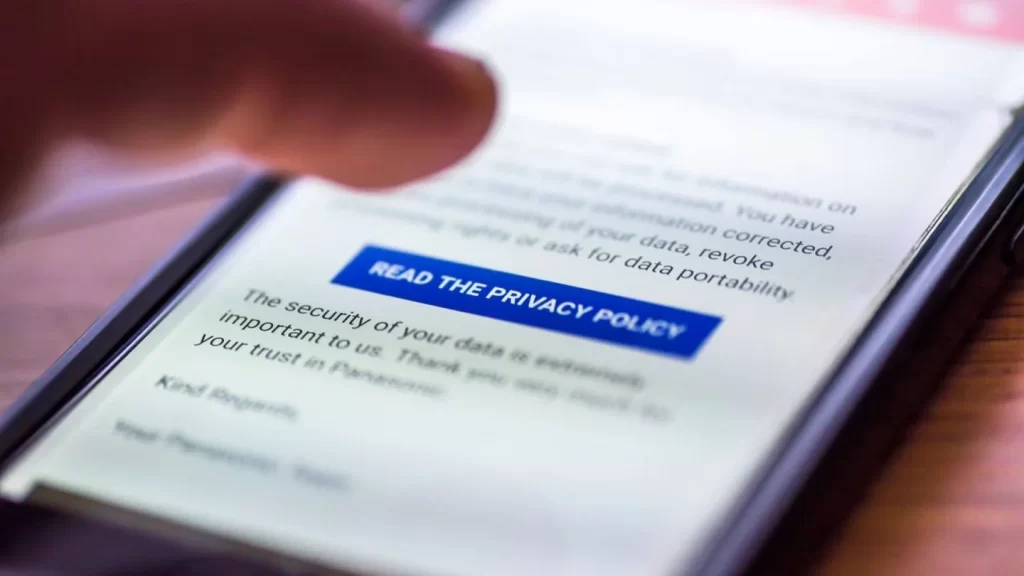
When convenience comes at the cost of privacy
Have you ever calculated how many traces you have left today, from the moment you woke up in the morning and unlocked your phone to now opening this blog? Your location, the web pages you browsed, the short videos you clicked on, and even the time you stayed…all of these are silently recorded, analyzed, and may be sold, reused, and repackaged.
As the technology philosopher Shoshana Zuboff argues, we are not the users of digital platforms—we are the raw material to be predicted, manipulated, and sold.
In this age of ‘Surveillance Capitalism’, every time we enjoy convenience, we are also silently handing over a part of ourselves. And this is exactly what we want to talk about today: How much freedom are you willing to exchange for the digital convenience in front of you?

The privacy we quietly give up
Digital privacy is the right we have to control our personal information – who am I, who knows who I am, and who decides. Unfortunately, in the context of the Internet, this right is being covered up by the ‘default consent’ mechanism.
When was the last time you carefully read the privacy terms? Or in other words, have you ever really refused an app to access your location, address book or microphone? Most likely not. Because the design itself makes you ‘too lazy to refuse’, the button is so small that you can hardly find it, and ‘disagree’ means limited functions, or even the app cannot run.
“The Routledge Companion to Media and Human Rights” points out that this default transparent structural design is placing ordinary users in an unequal information position, making informed consent a false proposition: “Digital public expression is nested in the dual network of commercial and political surveillance. It is difficult for ordinary people to understand the flow of data, and even more difficult to assert their rights.”
The surrender of privacy is often silent, but the consequences are huge. A search record may be used by the advertising system to reconstruct your consumption profile, a gym check-in may be read by the health insurance agency to adjust your premium. This is not just a technical issue, but also a structural power issue.
The temptation of convenience: Why are we willing to be tracked?
Why are we so willing to give up our privacy? The answer is actually very simple: because it is really too convenient.
Recommendation algorithms can accurately tell you the next drama you might like; voice assistants can arrange your schedule, send text messages, and call a taxi for you; map applications can automatically plan the best route. We are increasingly dependent on this human-like algorithm service, but we know very little about the operating logic behind it.
Many tracking mechanisms are passive. You don’t need to opt in for data to be gathered, your phone emits location data by default. Your browser stores behavioral logs. Smart devices can “listen” even when available.
Surveillance capitalism thrives not just on observing you but on shaping you. As Zuboff says, your behavior becomes the predictor and the product. This is not just advertising anymore, it is a form of control over people.
One of the most concerning aspects is how surveillance is normalized through entertainment and utility. For example, we use personal metrics for calorie trackers, we let Spotify analyze mood for better playlists and we share sleeping data with fitness apps. The reward is convenience and feedback. The cost is constant and normalized surveillance.
Real Case: Cambridge Analytica Scandal

In 2018, the Facebook data leak shocked the world. Cambridge Analytica, a British political data company, illegally collected personal data of more than 50 million Facebook users using a “personality test” app. What is chilling is that this data was used by Cambridge Analytica to build psychological profiles of voters and target them with emotionally charged political ads. It is not used for marketing, but for targeted political advertising to manipulate the US election and Brexit voting trends.
This scandal reveals the tip of the iceberg of behavioral manipulation-type privacy violations:
- Users did not authorize these uses
- The source of data is often “friend authorization”, you did not click “agree”, but your friends did
- The pushed political ads are personalized and untraceable, and even regulators find it difficult to restore the transmission path
This wasn’t just a data leak—it was systemic exploitation. The goal wasn’t to inform but to manipulate. The company exploited Facebook’s API to reach not just direct users but their entire social graphs.
The consequences went far beyond election cycles. Public trust in platforms like Facebook plummeted. #DeleteFacebook trended. Regulators across Europe and North America launched investigations. Facebook paid billions in fines, yet the underlying surveillance model remained.
This scandal also made more people realize how powerful social media is and how easily user trust can be broken. The #DeleteFacebook movement saw millions re-evaluating their online presence, prompting companies to issue more transparent privacy notices. Although many returned to the platform, it marked a cultural shift: users were no longer passive participants, but increasingly aware of how their data could be politicized.
It also rised new conversations around platform accountability. Should platforms be responsible for political outcomes they indirectly influence through targeted advertising? Should there be ethical boundaries through psychological profiling? These questions remain largely unresolved but signal a growing demand for reform.
And the pattern continues. In 2021, the facial recognition company Clearview AI was caught scraping large number of photos from social media without consent. In 2023, TikTok faced legal pressure from multiple countries over concerns about user data access by the Chinese government.
Emma Briant conducted an in-depth study of this incident in the book Routledge, pointing out that the acquisition and use of this type of large-scale behavioral data has changed from “user profiling” to “voter manipulation”, and its influence not only changes individual consumption behavior, but may also threaten the democratic mechanism itself.
Explore the full case via https://www.theguardian.com/news/series/cambridge-analytica-files
Do we really have a choice?
When we try to take back the control, we will find that the problem is harder than we thought. It may seem easy to “just disagree” at first, but in reality, that “disagreement” often leads to not able to use.
For example, if you refuse to authorize location access, you cannot use navigation; if you do not allow access to the address book, then don’t even think about using WeChat to make calls. Try rejecting Google. You’ll find that public services, transport apps, and even job applications often require Google accounts. In countries like China, digital IDs, facial recognition, and cashless payment systems have made data surrender part of our daily life. But even in Western democracies, rejecting data terms often means exclusion.
This problem is not just theoretical, marginalized groups, such as migrants, low-income workers, and racial minorities, often experience greater algorithmic bias and surveillance. Their data can significantly affect their opportunities like credit scoring. Big Tech companies have the resources to influence user behavior and shape policies, which creates a power imbalance. Try to resist often meet with pushback or denial, such as using ad blockers or asking for transparency.
Take app-based delivery workers, for example, their work conditions, pay, and chances for advancement are driven by unclear algorithms. They cannot effectively challenge decisions because the reasoning behind those decisions is hidden. This shows that digital systems not only respond to human choices, they can limit them as well.
In healthcare, both diagnostics and AI applications of this technology are becoming more common, but patients often don’t know how their data is utilized. Moreover, younger generations are growing up in a culture of constant surveillance, where tracking is normal. They grew up not knowing this information or what it was like without it.
This “illusion of choice” in the digital field isn’t just about rejecting specific apps, it also involves questioning the systems that limit our choices. The challenge of reclaiming control is often more complex than anticipated. While you may think you can simply refuse to agree to terms, doing so often means losing access altogether. For instance, denying location access makes navigation impossible to use, and disallowing access to your address book means you can’t use messaging apps.
Additionally, the level of digital privacy regulations varies greatly by country:
- The EU GDPR emphasizes the right to data portability, the right to be forgotten, and default non-collection
- Although Chinese Personal Information Protection Law started late, it emphasizes data sovereignty to a extent
- The United States mainly relies on industry self-discipline and lacks unified supervision at the federal level
What can we do? Find a balance between convenience and freedom
Although the problem is huge, it is not unsolvable. As ordinary users, we do have some power. We can try from two aspects: “personal behavior” and “public participation”:
Privacy-invading behavior in daily life:
- Use DuckDuckGo or Brave instead of Google search and browser
- Download end-to-end encrypted communication tools such as Signal and ProtonMail
- No longer “one-click consent”, actively enter the privacy settings to manage authorization
- Regularly clear browsing history and App permissions
Support institutional reform and advocacy
- Promote more transparent data collection regulations (such as “clear notice + refusal” like GDPR)
- Encourage platforms to set up “simple exit mechanism” and “data export right”
- Pay attention to digital policy trends
On the legal site, the General Data Protection Regulation (GDPR) is a good law granting EU citizens rights like the right to know what data is collected from them, the right to ask data be deleted, and especially the right to say that certain things may not happen to it. It’s a bit flawed, but offers an excellent glimpse at norms worth guiding the world.
We also need greater accountability for platforms profiting from data. The metaphor for ‘data as oil’ 1often ignores a critical distinction: oil is finite but data regenerates with every click and swipe, it’s infinite. This feature gives tech firms enormous power, but also a responsibility they have to fully embrace.
Transparency reports should be mandatory. Clearly about what data is collected, with whom it is shared, and how long it is stored, must be easily accessible to users. What’s more, designing for privacy, such as through anonymization, decentralized data storage, is not just possible but necessary.
Finally, public pressure can also play a role. Major browser companies now block third-party cookies by default in response to user demand. Regulators are taking platforms to court.
Activists and watchdogs continue to expose hidden data pipelines. Your awareness, advocacy, and action also matter. For hands-on guidance, check out the Electronic Frontier Foundation’s Surveillance Self-Defense , which offers accessible privacy tips and tools for all users.
Privacy is a right, not a luxury
Before thinking of privacy as a personal choice, we should see it as a basic human right we all share. The United Nations has pointed out that digital privacy is key to human rights. When governments or companies watch people secretly and without limits, it can harm democracy, free speech, and human dignity.
So protecting privacy isn’t just about avoiding ads or stopping data collection, it’s about making sure us can think freely, speak freely, and live our lives without being constantly watched.
Digital convenience isn’t a bad thing, but without set rules, it can be used to manipulate or control us. Privacy does not equal hiding, it means being free to decide the way we exist, connect with others to live and become part of society.
It takes more than access to an app for a society to be free. There should be actual control, clear rules, laws and digital rights to ensure all of us are protected rather than just the privileged.
The good news is more people are paying attention. But awareness alone isn’t enough. We need better systems that respect consent, stronger rules to keep tech companies in check, and a culture where privacy is the norm, not an extra feature. So next time when you click “I agree,” take a moment to think. you’re helping to improve the future of the digital privacy world.

Reference list
ALICE E. MARWICK. (2018). International Journal of Communication 12(2018). Understanding Privacy at the Margins, 1157–1165(1932–8036/20180005).
Apple. (n.d.). Customer Letter – Apple. https://www.apple.com/customer-letter/
Cox, D. (2021, May 26). Is it Time to Rethink. . . ‘Data is the New Oil’? – Geek Culture – Medium. Medium. https://medium.com/geekculture/is-it-time-to-rethink-data-is-the-new-oil-6a7aa32dbeb9
GDPR.eu. (2019, February 19). General Data Protection Regulation (GDPR) Compliance Guidelines. https://gdpr.eu/
Šisler, V., Švelch, J., & Šlerka, J. (2017, September 29). Global Digital Culture| Video games and the asymmetry of global cultural flows: The game industry and game culture in Iran and the Czech Republic. Šisler | International Journal of Communication. https://ijoc.org/index.php/ijoc/article/view/6200
Tumber, H., & Waisbord, S. (2017). The Routledge companion to media and human rights. Routledge. https://lccn.loc.gov/2016054861
Suzor, N. P. (2019). Lawless. https://doi.org/10.1017/9781108666428
Surveillance Self-Defense. (n.d.). https://ssd.eff.org/
Privacy Policy | Clearview AI. (n.d.). Clearview AI. https://clearview.ai/privacy-policy
The Guardian. (n.d.). The Cambridge Analytica Files | The Guardian. https://www.theguardian.com/news/series/cambridge-analytica-files
Zuboff, S. (2019). The age of surveillance capitalism: The Fight for a Human Future at the New Frontier of Power: Barack Obama’s Books of 2019. Profile Books.
- It started with Clive Humby, a British data scientist, who came up with the saying “data is the new oil” in 2006. Since then, this sentence has gradually become a business topic, often mentioned by journalists, politicians, and leaders around the world. This phrase highlights how both oil and data are vital to today’s global economy, with data slowly taking the place of oil. Humby also pointed out that, just like oil, data on its own isn’t valuable until it undergoes costly and detailed processing to unlock its worth. ↩︎

Be the first to comment